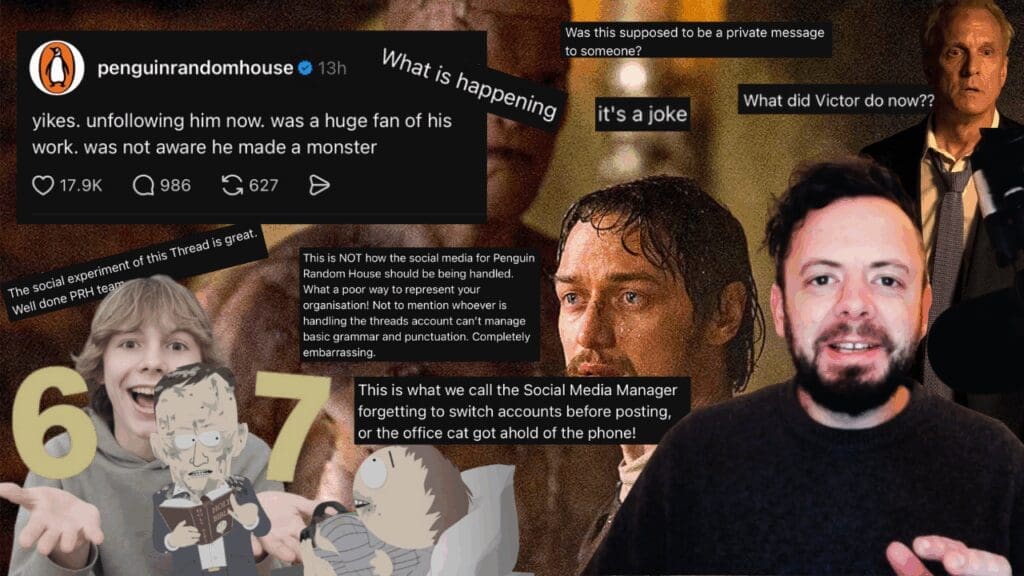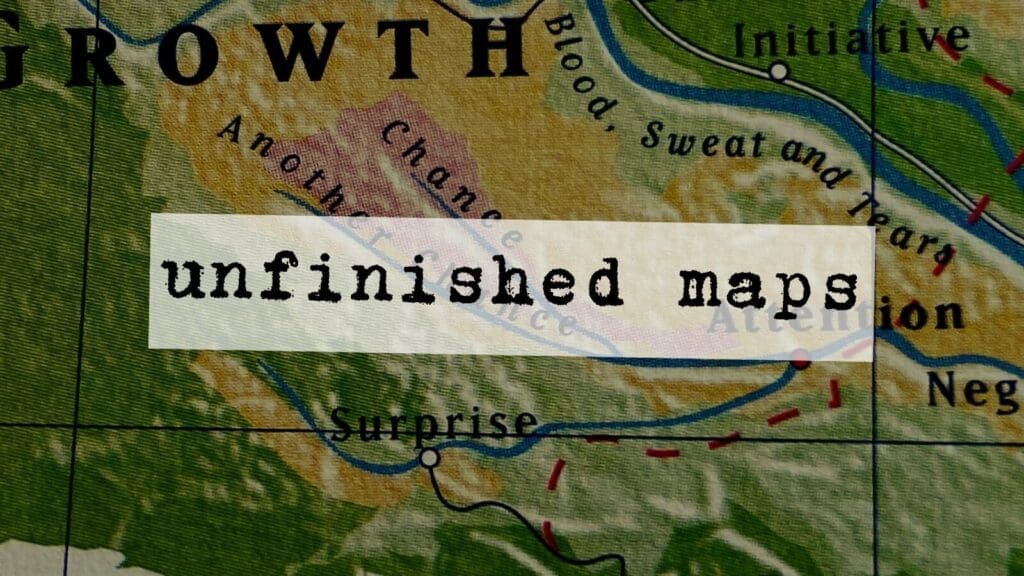It doesn’t mean anything…and that’s the point

Does something need intentional meaning to be meaningful?
This might sound like an odd question, but it’s been gnawing at me since our Haven Journal Circle last week, when we reflected on the question, How does your creativity change when you loosen your grip on meaning?
In this Note from a Slow Coach, I want to explore how our drive to find meaning in everything may affect our creative spirit, and how we might reconnect with the joy of meaninglessness. Because I don’t know about you, but for me, some of the most meaningful moments in my life have happened when things don’t make much rational sense.
Social Media Before The Engagement Bait
Do you remember pre-algorithmic social media? You don’t need a rose-tinted view to see how much better it was when trends were natural rather than mechanical. It might seem hard to imagine now, but Twitter was actually quite a fun place to be. Absurd nonsense often arose from people jumping on and expanding trends that made no sense but encouraged playful, low-stakes participation. Much of it was amusingly pointless, and that’s what felt meaningful about it (especially looking back now!)
I was recently reminded of those days on Threads when I saw something Penguin Random House had joined a trending bandwagon:
“ yikes. unfollowing him now, was a huge fan of his work, was not aware he made a monster ”
They were engaging in a trend of treating fictional characters as real accounts with questionable behaviour. It follows a familiar pattern seen among social media users who declare they are unfollowing someone they have decided is no longer acceptable to follow.
A Range of Reactions
The comments underneath were fascinating to read. Oh, of course they were!
- Some were outraged by the unprofessional tone and poor grammar.
- Others were convinced the social media manager had posted from the wrong profile and awaited the fallout.
- Some demanded to know who was being cancelled and insisted Penguin had a duty to disclose the target.
- Then came the people explaining, “It’s a joke about Frankenstein” to promote the new movie, followed by those explaining the joke was actually about us and how predictable our reactions are online.
What Has Shifted
On the surface, the post echoed those earlier moments of internet absurdity. But something felt different. The appreciative comments weren’t celebrating the playfulness. They were praising the post as clever marketing…
“This is seriously well done, take my engagement”, and “the social experiment of this Thread is great”.
6-7 and the Search for Meaning
This got me thinking about the six-seven trend, too. A viral phenomenon built on nothing. The numbers can be traced to an origin, but that doesn’t matter. The essential meaninglessness is what fuels the spread.
And yet, somewhat predictably, people have been driven to distraction by the pursuit of understanding and the attempt to decode it. South Park satirised it, with Peter Thiel on a moral crusade, hunting for the evil hidden message behind the numbers that make Cartman sick from laughing whenever he hears them.
These sorts of trends aren’t new. Meaninglessness has always been a portal to belonging, rebellion, and play. And older generations panicking about youthful nonsense is one of humanity’s most reliable traditions.
Essentially, people enjoy playing! Yet, we often complicate it for ourselves and fail to recognise it for what it is.
Pointless Things Matter
We could dismiss these things as pointless, and in one sense, they are. But that’s precisely what makes them meaningful. They step outside usefulness, productivity, and purpose. They invite participation for no reason other than to join in and engage our creative spirit.
Meaning Transcends Understanding
We often confuse meaning with understanding. However, creativity does not typically follow that pattern. In a creative context, meaning is relational and is not necessarily pre-conceived. It emerges through connections between ideas, objects, and people; an intuition that surpasses language and extends beyond what can be fully and rationally communicated.
This is why I aim to imbue the Coming To Our Senses zine with ambiguity and avoid over-explaining. It’s an invitation rather than a prescription. It trusts the reader/listener and allows us to engage with the ideas through our own experience, perspective, and lens, and consider how that position influences the meaning we assign to it.
The Unsettling Doorway of Ambiguity
Loosening our grip on meaning opens the door to ambiguity, which is not always a comfortable place to reside. Being without a clear answer can be unsettling. But it often leads to deeper, more creative encounters when we allow ourselves to linger in that liminal space long enough to let go of our need for control.
I remember searching for something about Howard (the character in Better Call Saul). Google suggested the question: “Is Howard good or bad?” Clearly, many people wanted to be told what to think of him!
This gave me pause. It revealed viewers’ desire to outsource moral interpretation, perhaps conflicted by their mixed feelings. Howard was a well-rounded, complex, human character. He doesn’t fit neatly into the binary goody/baddy construct. You know, like all of us!
Letting Meaning Take Care of Itself
We don’t need to decide, understand, and control what something means before sharing it with the world. The more we do, the less meaningful we risk making it. We may find ourselves draining its vitality or even choosing to avoid sharing altogether.
Life is full of moments that feel meaningful precisely because they aren’t trying to be. We can learn to accept them, engage with them, and share them in ways that add, contribute, and connect, rather than extract, hoard, and exploit.



